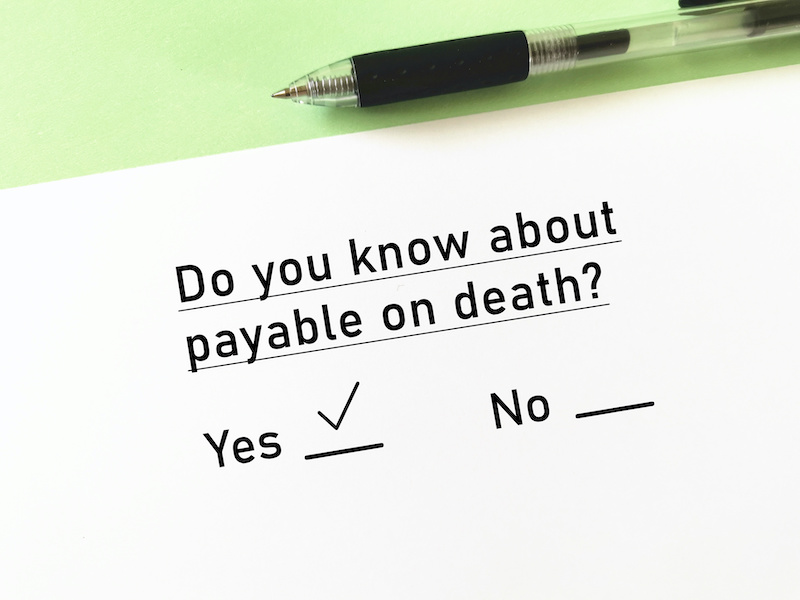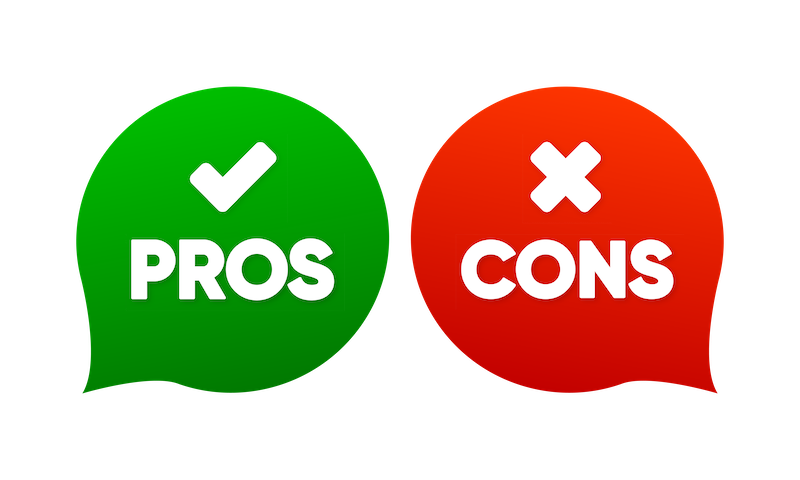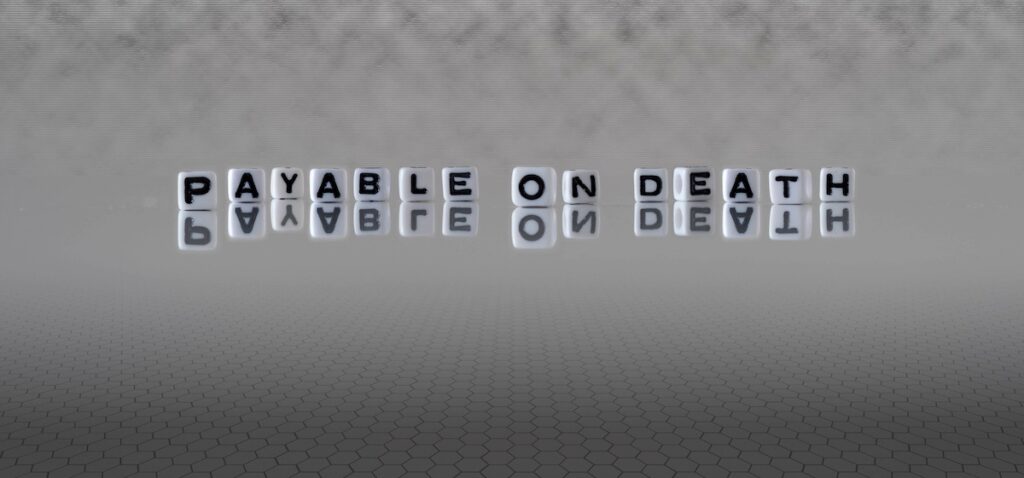
Adding a payable-on-death (POD) or transfer-on-death (TOD) designation to an account enables assets (money and property) in that account to pass to a named beneficiary when the original account holder dies. Like trusts, POD and TOD accounts bypass probate. They are also fast, easy, and usually free to set up. However, they do not provide the full range of benefits that a traditional trust does and can have some unintended consequences.
Before deciding whether to set up a POD or TOD account, it is important to know the difference between them, understand their pros and cons, and talk to an attorney about how they fit into your estate planning goals.

Payable on Death POD versus Transfer on Death TOD (versus a Trust)
Payable on death and transfer on death sound ominous; and while the topic of death is always somewhat gloomy, POD and TOD are estate planning terms that financial account holders should be familiar with.
Most estate administrators seek to avoid probate. Probate can be time-consuming and costly, but there are ways to avoid it, such as placing assets in trusts that pass outside of probate.

Another way to avoid probate is to use POD and TOD accounts for asset transfers. POD and TOD differ mostly based on the types of accounts and assets held in the account.
- POD applies to a bank account, such as a checking account, savings account, certificateof deposit (CD), and money market account.
- TOD applies to an investment account, such as an individual retirement account, 401(k), brokerage account, and other accounts holding securities.
Another difference between POD and TOD accounts lies with a POD designation. The account assets transfer to a beneficiary (or beneficiaries). On the other hand, with a TOD designation, account ownership transfers to a beneficiary.

Pros and Cons of Payable on Death and Transfer on Death
It is important to note that, in the case of jointly held accounts, a POD or TOD account designation does not kick in until both account holders have passed away. For example, spouses who jointly own a bank account set it up as a POD account. Thus, if the surviving spouse becomes the sole owner of the account when the first spouse dies, it only passes to named beneficiaries after the surviving spouse dies.
The probate avoidance offered by a POD or TOD account is its main appeal. But weigh this and other benefits against the following potential pitfalls:
- A POD or TOD does not take effect until the owner becomes incapacitated.
- Backup beneficiaries cannot be named. So if a beneficiary predeceases the account owner, their share of the account could be automatically reallocated to the remaining surviving beneficiaries or subject to probate.
- POD and TOD accounts are established through a financial institution and outside the rest of the estate plan.
- Because POD bank accounts avoid probate and pass outside of the estate, the funds in them are not available to settle claims or debts of the estate, such as estate taxes.
- If there are insufficient probate assets to pay the debts of the estate, creditors may be able to claim certain non-probate assets, including POD and TOD accounts.
Is a Payable on Death or Transfer on Death Account Right for My Estate Plan?

An estate plan is a highly individual matter that reflects your personal wishes and family dynamics. As such, there is no “one size fits all” advice for an estate plan. The pros and cons of any estate planning vehicle—be it a POD, TOD, revocable trust, will, or power of attorney—must be weighed against your values and goals.
About Skvarna Law Firm in Glendora and Upland, California

Let a skilled attorney assist with your estate plan. So, contact us today to learn about your options (909) 608-7671. We operate offices in Glendora and Upland, California. Therefore, we provide legal services for individuals living in San Bernardino, Los Angeles, Orange, and Riverside Counties. This includes the cities of Upland, Ontario, Rancho Cucamonga, Fontana, Colton, Rialto, Chino, Chino Hills, Glendora, Claremont, Montclair, Pomona, La Verne, San Dimas, Azusa, Covina, West Covina, Diamond Bar, Walnut, La Puente, Corona, Norco & Mira Loma. Visit SkvarnaLaw.com to learn more.


